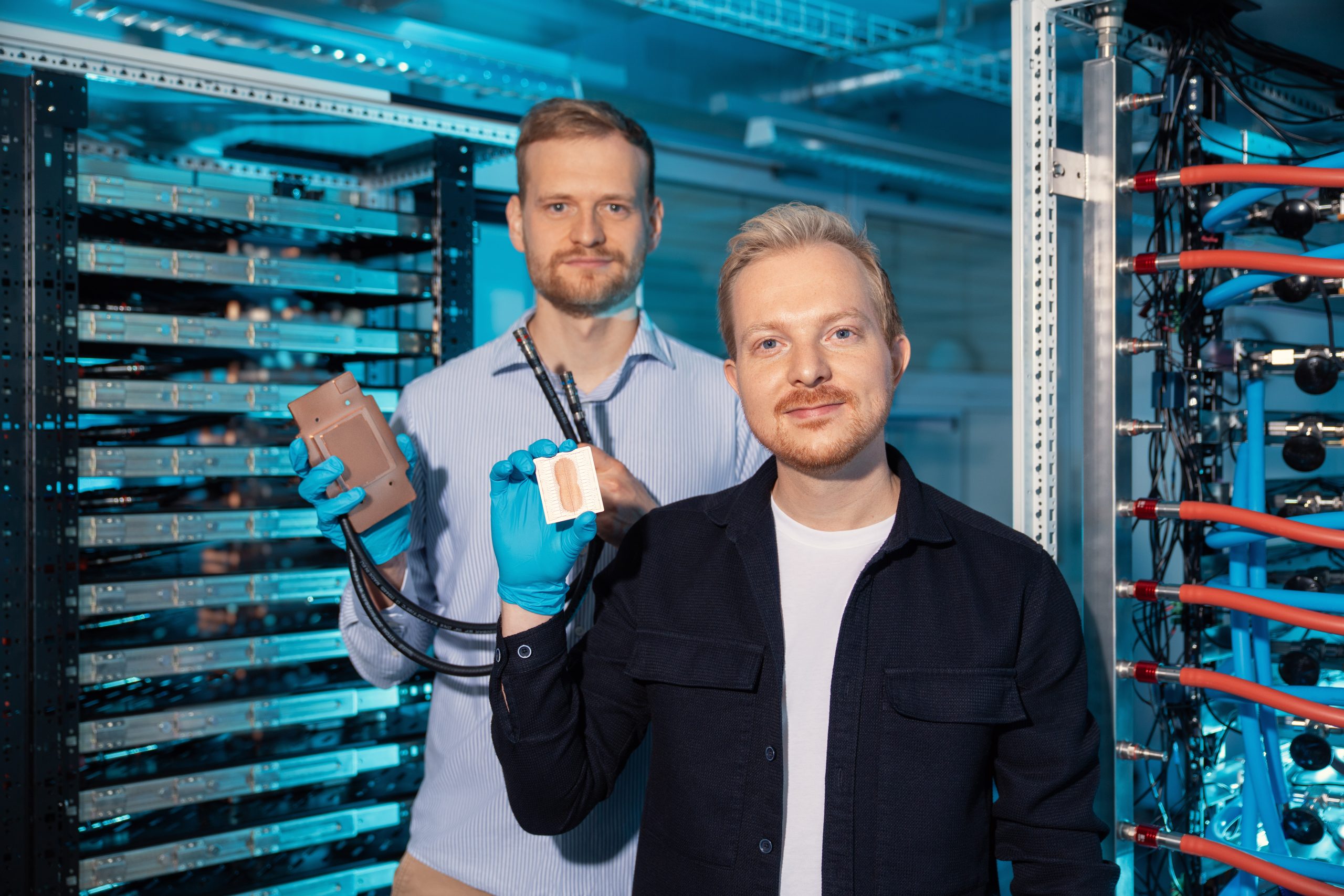Corintis Secures $24M Series A Funding to Address AI Chip Cooling Bottleneck Through Microsoft Collaboration

Summary
Full Article
Corintis, a semiconductor cooling startup emerging from stealth mode, has secured $24 million in Series A funding to tackle what has become a critical bottleneck in artificial intelligence advancement: thermal management of high-power computer chips. The funding round was led by BlueYard Capital with participation from Founderful, Acequia Capital, Celsius Industries, and XTX Ventures, bringing the company's total raised capital to $33.4 million.
The growing demands for more powerful and accessible AI have created unprecedented requirements for computational power, with newer GPUs and AI accelerators expected to increase power requirements by tenfold compared to early ChatGPT training systems that used 400W NVIDIA chips. This exponential growth in power consumption necessitates advanced liquid cooling solutions, as evidenced by NVIDIA's recent adoption of liquid cooling for its latest data center GPUs.
Corintis's technology focuses on microfluidic cooling, employing optimized micro-scale liquid cooling systems specifically designed for computer chips in data centers handling advanced computation, including generative AI. The company's breakthrough collaboration with Microsoft has resulted in developing an in-chip microfluidic cooling system that effectively cools servers running core services. Testing demonstrated that this embedded cooling system removes heat three times more effectively than the most advanced technology currently available.
According to Husam Alissa, director of systems technology in Cloud Operations and Innovation at Microsoft, the thermal margin achieved through this technology translates at the software layer to yield more performance and overclocking potential. The breakthrough also enables new 3-D chip architectures previously impossible due to thermal limitations of stacking high-power system-on-chips without inner layer cooling. Microsoft announced the successful development earlier this week at https://www.microsoft.com.
The company's approach involves co-designed microfluidic cooling, combining best-in-class simulation and optimization software with new manufacturing methods to create micro-scale optimized liquid cooling systems adapted to specific chip architectures. This technology can be supplied as either a drop-in replacement for existing liquid cooling systems or integrated with chips as co-packaged cooling, achieving up to ten times improvement in cooling performance while reducing data center water consumption.
Corintis has developed several technology platforms to support its mission, including Glacierware for automating cooling system design, a copper microfluidic manufacturing facility capable of producing cold plates with features as small as a human hair, and the Therminator platform that allows chip companies to physically emulate next-generation chips with millimeter accuracy on silicon test chips before production. The company maintains an engineering presence at https://www.epfl.ch.
With the new funding, Corintis plans to expand its team from 55 to over 70 employees by year-end and significantly scale its manufacturing capacity to exceed one million microfluidic cold plates annually by 2026. The company has already manufactured over ten thousand cooling systems deployed in data centers running leading-edge AI chips and has achieved eight-digit cumulative revenue since incorporation, with projections to increase this tenfold through early deployments.
The funding round brings significant industry expertise to Corintis's board, with Lip-Bu Tan, chairman of Walden International and former Intel CEO, joining as a board director and investor. Tan emphasized that cooling represents one of the biggest challenges for next-generation chips, noting that Corintis is fast becoming the industry leader in advanced semiconductor cooling solutions. Geoff Lyon, former CEO and founder of CoolIT, has also joined the board, strengthening the bridge between semiconductor design, manufacturing, and chip-cooling disciplines.
David Byrd, general partner at BlueYard Capital, highlighted that AI's insatiable demand for compute is pushing chips to unprecedented power densities, and Corintis is unlocking the next wave of performance by making cooling a design feature rather than an afterthought. The company's technology, based on research conducted at the Federal Institute of Technology in Lausanne (EPFL) in Switzerland, addresses the fundamental challenge of adapting cooling systems to unique chip architectures rather than relying on simplistic designs.
As computational demands continue to escalate with AI advancement, Corintis's microfluidic cooling technology represents a critical enabler for future computational capabilities, potentially impacting not only AI development but also climate modeling, drug discovery, and other computationally intensive fields where thermal management has become the limiting factor in performance scaling.

This story is based on an article that was registered on the blockchain. The original source content used for this article is located at citybiz
Article Control ID: 223863